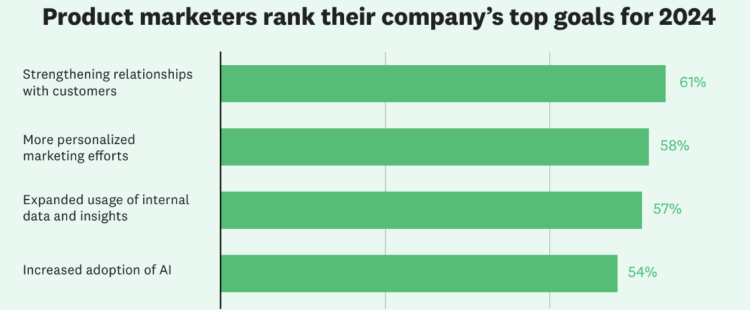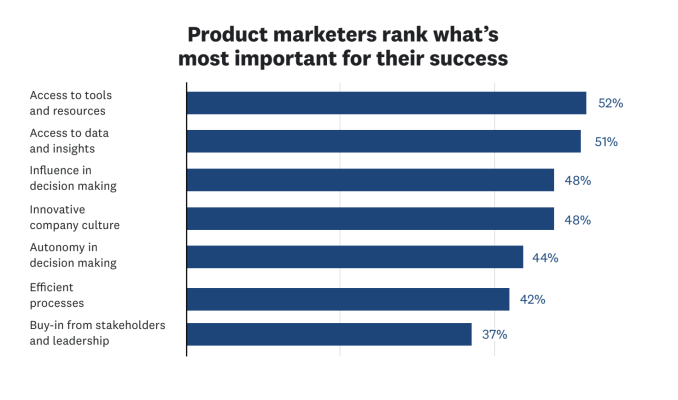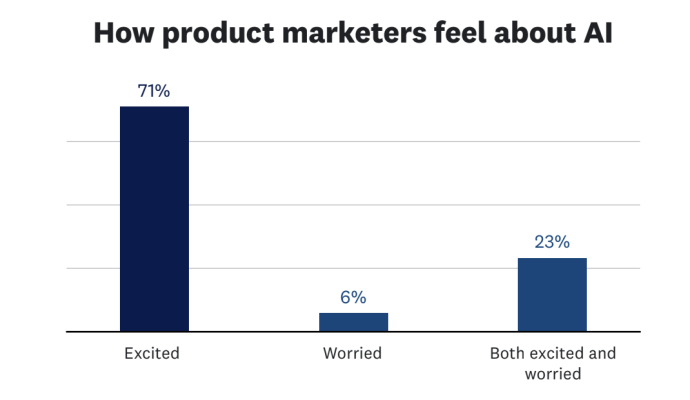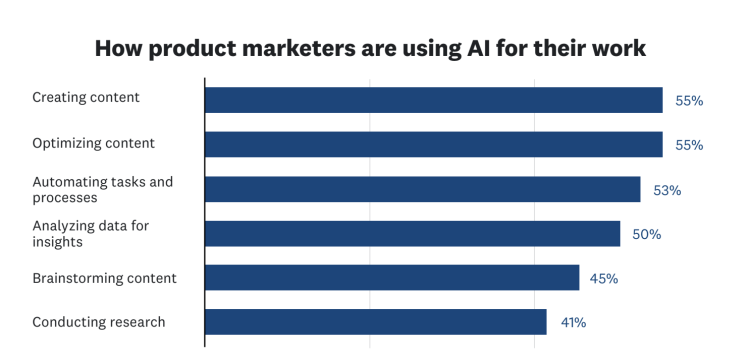Know your customer. It’s always been one of the core tenets of product marketing. But in today’s marketplace, understanding your target market has taken on a new meaning.
Focusing on typical customer attributes, like job title, role, gender, pain points, or location, are no longer enough. Product marketers (PMMs) are being asked to build hyper-specific personas that combine past activities with real-time behavioral data to create relevant and personalized messaging.
Sounds promising. However, at the same time PMMs are being asked to understand more, anti-tracking laws and changes to privacy policies will make it more difficult to collect customer data. Reliable channels, like social media, are being impacted by the rise of AI and the elimination of third-party cookies.
Luckily, new approaches have emerged that will help PMMs with this challenge. Companies are committed to collecting more first-party data instead of relying on third-party data collected from other websites. AI promises to be a gamechanger for PMM teams as well. In fact in a recent SurveyMonkey study of marketers study, 90% of PMMs reported they are already using AI—and the areas where they are using it range from generating content to uncovering insights that lead to more successful campaigns.
Our study asked 507 US marketing professionals, of which 119 were product marketers1, to weigh in on the state of product marketing; what they were trying to accomplish, how they planned to reach their goals and what has changed since last year. Here are two key PMM strategies we covered in our report.
1. Get closer to the customer
Product marketers play a highly strategic role in transforming the voice of the customer into product requirements. However, chasing after what customers want can be tricky, especially as their needs change and the market shifts.
Half (50%) of product marketers said tracking the changing needs of their target market was their biggest challenge in 2024. In addition, 45% said they lacked the tools they needed to gather feedback. And, four out of ten said they didn’t have clear metrics to understand their target market.
That doesn’t mean PMMs don’t recognize the need to get close to customers. Six out of ten (61%) of product marketers said strengthening relationships with customers was their company’s top goal.

Personalization will be a top trend for 2024. Over half (58%) of PMMs say they plan to roll out more personalized marketing efforts. And with the elimination of third-party cookies, PMM teams are looking to collect their own customer information. Four out of ten product marketers (40%) say they rely on first-party data to understand customers, an important step in delivering a more personalized experience.
The focus on personalization will change how PMM teams look at data. Over nine out of ten product marketers say that data helps with decision making, and almost a third (31%) said that data will fully determine their business decisions this year. Only 7% of marketers say that data does not influence their decisions, which constitutes an 11 point decrease from 2023.
2. Harness new approaches to do more
How will PMMs capture more customer data? By accessing the most current tools and technologies available. Collecting customer data will become more important, requiring marketers to tap into new solutions and data sources to keep up with the market and their customers.
Over half (52%) of product marketers agree that access to tools and resources is the most important factor to the success of their jobs—the top response. Coming in at a close second is access to data and insights, which 51% of product marketers cited it as the most important factor.

Product marketers will also rely on new solutions and technologies, specifically AI, to contribute to marketing strategies and deliver high-impact customer engagements. The majority of PMM teams report they are already using AI in a variety of ways.
AI will shift how customer insights are captured and applied. It will change how PMM teams engage with customers by predicting needs, instead of following past actions. This predictive data will be used to create hyper-personalized messaging, value propositions, and storytelling that will resonate with potential customers.
The vast majority of product marketers are enthusiastic about the potential of using AI in their jobs. In fact, PMMs are more excited about AI than their marketing counterparts. In our study, 71% of PMMs are excited, compared to 69% of all marketers, and only 6% say they are worried, compared to 14% of all marketers.

Nine out of ten product marketers are already using AI in their job, and almost a quarter (23%) say they are using it a great deal. The use cases are varied—from generating content to uncovering insights about their target audience—and most PMMs are using AI it in more than one area.

We’ve uncovered even more insights about how product marketers are feeling about today’s more personalized and customer-focused marketplace. Get the report, and learn more about what’s next for product marketers.
Product marketing trends for 2024
Read our latest research about how personalization and AI will help PMMs keep up with the market and customer needs.
Methodology
1This SurveyMonkey study was conducted on January 8-18, 2024 amongst a sample of 707 workers in the US, including 507 marketing professionals of which 119 are product marketers. Respondents for this survey were selected from the more than 2 million people who take surveys on our platform each day.



